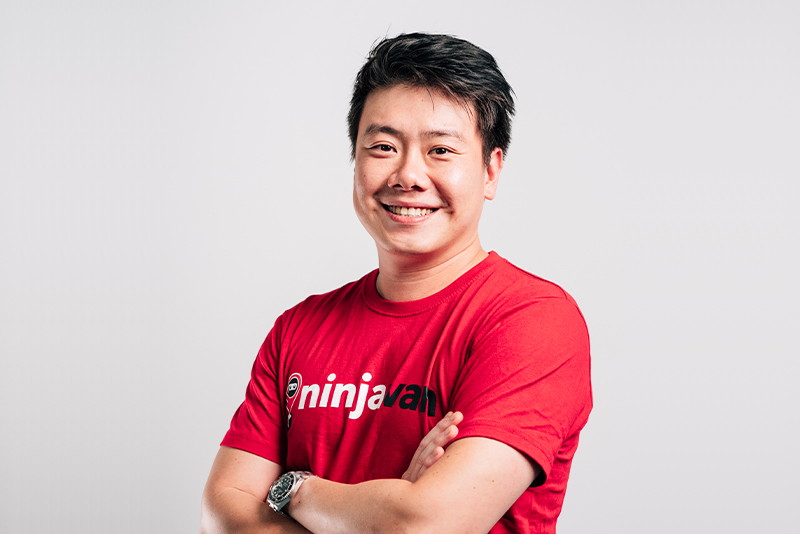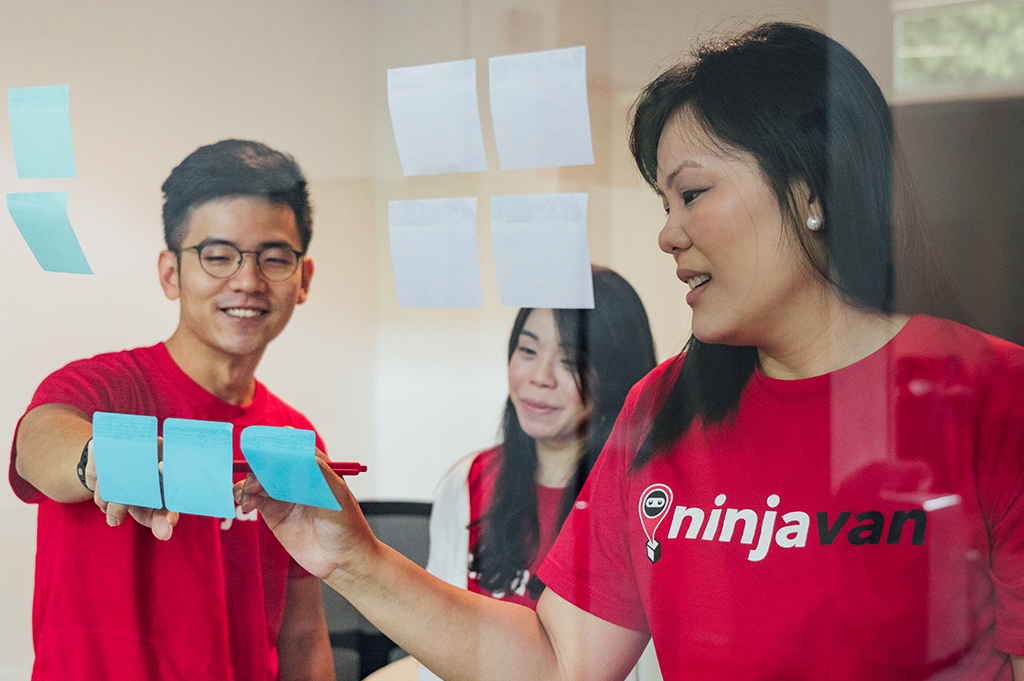
Fostering A Global Mindset
Ninja Van is looking to fuel international growth by equipping its people with the skills to effectively operate across borders.
Logistics start-up Ninja Van has gone from strength to strength since its establishment in 2014, as it sought to positively disrupt the delivery services space in Singapore and the region. In September, the Singapore-based company closed a US$578 million round of funding to support the expansion of its operations, infrastructure, and technology systems. Investors included existing investors DPDgroup’s GeoPost, Facebook co-founder Eduardo Saverin’s B Capital Group, Monk’s Hill Ventures, and Zamrud. China e-commerce giant Alibaba Group also participated in their Series E funding.
As the company operates in multiple countries across Southeast Asia, it was keen to equip its employees with the skills and knowledge needed to work productively with their foreign counterparts. As such, it participated in SBF’s Career Conversion Programme for Internationalisation Professionals (CCP-I).
Under CCP-I, participants undergo a nine-month programme that includes classroom training and e-learning sessions, mentorship, and structured on-the-Job training. The training is customised to the specific market that a participant is handling.

BiZQ speaks to Ninja Van’s Lai Chang Wen, Co-Founder and CEO of Ninja Van, on the company’s approach to internationalisation, how it attracts and retains talent, and key takeaways from CCP-I.
Can you explain Ninja Van’s approach towards internationalisation?
When we were planning our strategic approach towards internationalisation, the first thing we did was to be very cognizant that things would be different in other cultures and geographies. We were also realistic about the size of the target addressable market – where it starts and ends, its current total demand, and its growth potential.
Our approach towards building teams across Southeast Asia includes hiring experienced local candidates that can bring both a comprehensive and deep understanding of the local culture, business expectations, and on-the-ground experience to help Ninja Van tailor products and solutions that are the best fit for each market.
Through their support, we are able to establish strong and reliable ties across local communities and stakeholder groups, while they also benefit from being able to tap into our network of colleagues and teams across the region, and gain access to technology and regional resources. In this sense, we are able to provide consistent service quality and reliability across all the markets we operate in.
How does the company attract and retain talent across markets to sustain growth?
Our culture and values have always been very attractive to individuals who are interested in being part of a high-growth organisation. With a headcount of more than 61,000 employees regionally, our employees are aware of Ninja Van’s core values — “Lean Towards Action”, “Learn and Improve”, and “Deliver on Promises” — that shape our shared culture. We continue to hire individuals who believe in the kind of work ethic that has allowed us to reach the scale that we are at now.
Employment development is a long-term initiative. An impactful way to ensure our employees can grow within Ninja Van is to ensure that they have the tools and resources to chart their own course. There is now a stronger focus on exploring different ways to guide employees on their path to success, whether by broadening their experience or giving depth to their current abilities. We are also starting to be a lot more deliberate about ensuring that these opportunities are available to all employees and see that as key to retaining our employees.
With the rise in e-commerce, especially during the pandemic, how has Ninja Van tapped digitalisation to grow?
We have made significant investments in our proprietary tech across our entire Southeast Asian network since our establishment in 2014 and are well-prepared to tackle fluctuations in parcel volumes and disruptions to supply chains.
With existing shoppers ordering more online and new users trying online shopping for the first time, we experienced both higher parcel volumes and higher expectations from both shippers and customers. To meet this challenge, we launched NinjaChat, an AI-powered social messaging service that connects users with the Ninja Van team and allows parcel recipients to track their parcels across the delivery process.
We have also put greater focus on user experience with our “Fantastic Service Recovery” approach towards resolving issues. This initiative involves integrating the various touchpoints and platforms that our teams use to create streamlined processes to resolve any customer or delivery issues swiftly and provide more reliable outcomes for customers. This also enables us to monitor data on our deliveries and customers, and anticipate any potential issues before they become bigger problems.
Coupled with our investment in automated systems, increased fleet capacity, and greater number of sorting hubs across the region, we are now able to offer Ninja Van customers a hassle-free, faster and more reliable experience.
For our employees, we rely on tech solutions like video conferencing and messaging platforms to connect teams across different offices and countries. By integrating technologies that employees can use during this pandemic, our workplace has become a truly digital one, where employees can overcome physical barriers and continue to engage with colleagues and feel connected to the company and their teams.

How has SBF’s Career Conversion Programme for Internationalisation Professionals (CCP-I) helped Ninja Van reach new customers and seize new opportunities overseas?
As a company that operates across multiple markets in Southeast Asia, and with its headquarters in Singapore, the CCP-I has equipped our employees with the necessary skill sets and tools to deploy when working with our foreign counterparts.
This complements the hands-on work experience that our employees engage in on a day-to-day basis and allows those who are enrolled in the programme to effectively apply what they have learnt in the classroom to real-world scenarios.
What is one piece of advice you can give to companies looking to embark on SBF’s CCP-I?
The CCP-I allows flexibility both in terms of the training schedule as well as availability of courses. The breadth of courses offered also ensures that the training would be relevant to employees regardless of their prior work experience and current role.
For companies that are looking to grow quickly, this helps in ensuring that your employees are able to balance the rigours of working, and at the same time, are equipped to develop the necessary skills to be more effective in their roles.
The Career Conversion Programme for Internationalisation Professionals (CCP-I) supports companies looking to break into overseas markets to reach new customers, access collaboration opportunities, and build a pool of talent with practical skills who are able to help businesses achieve growth. For more information on the programme, please visit https://www.sbf.org.sg/capability-building/sbf-business-institute.


















